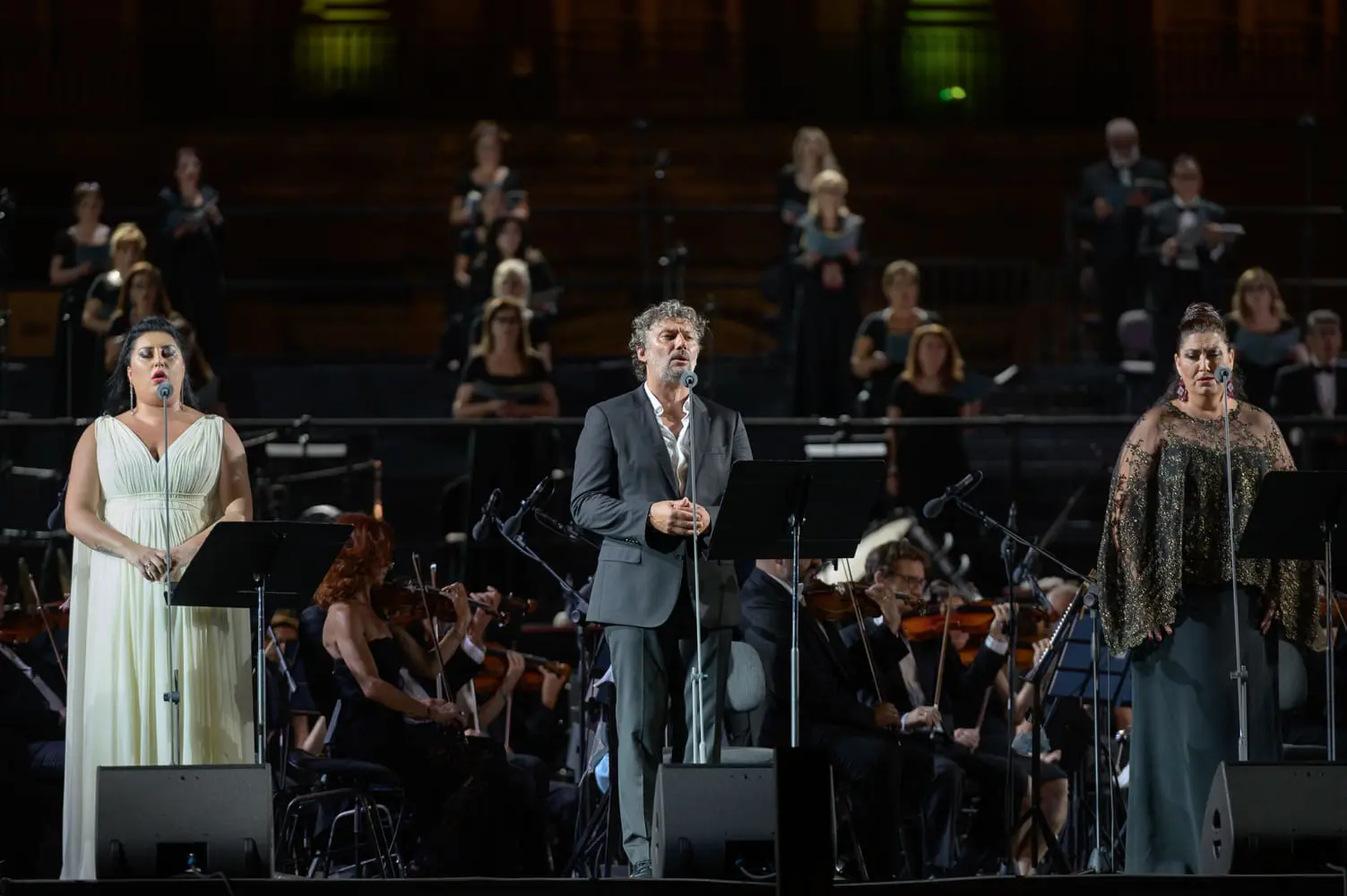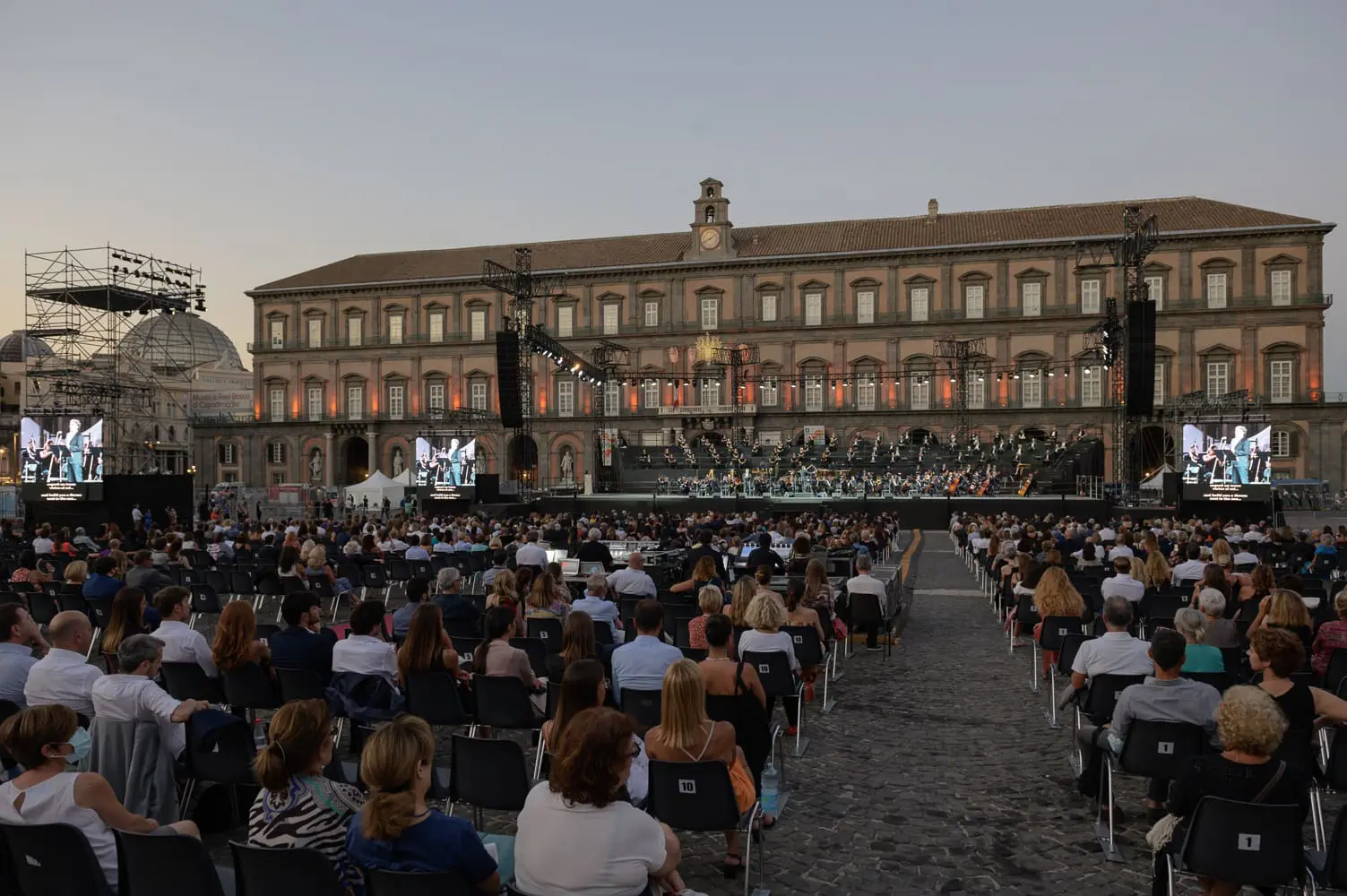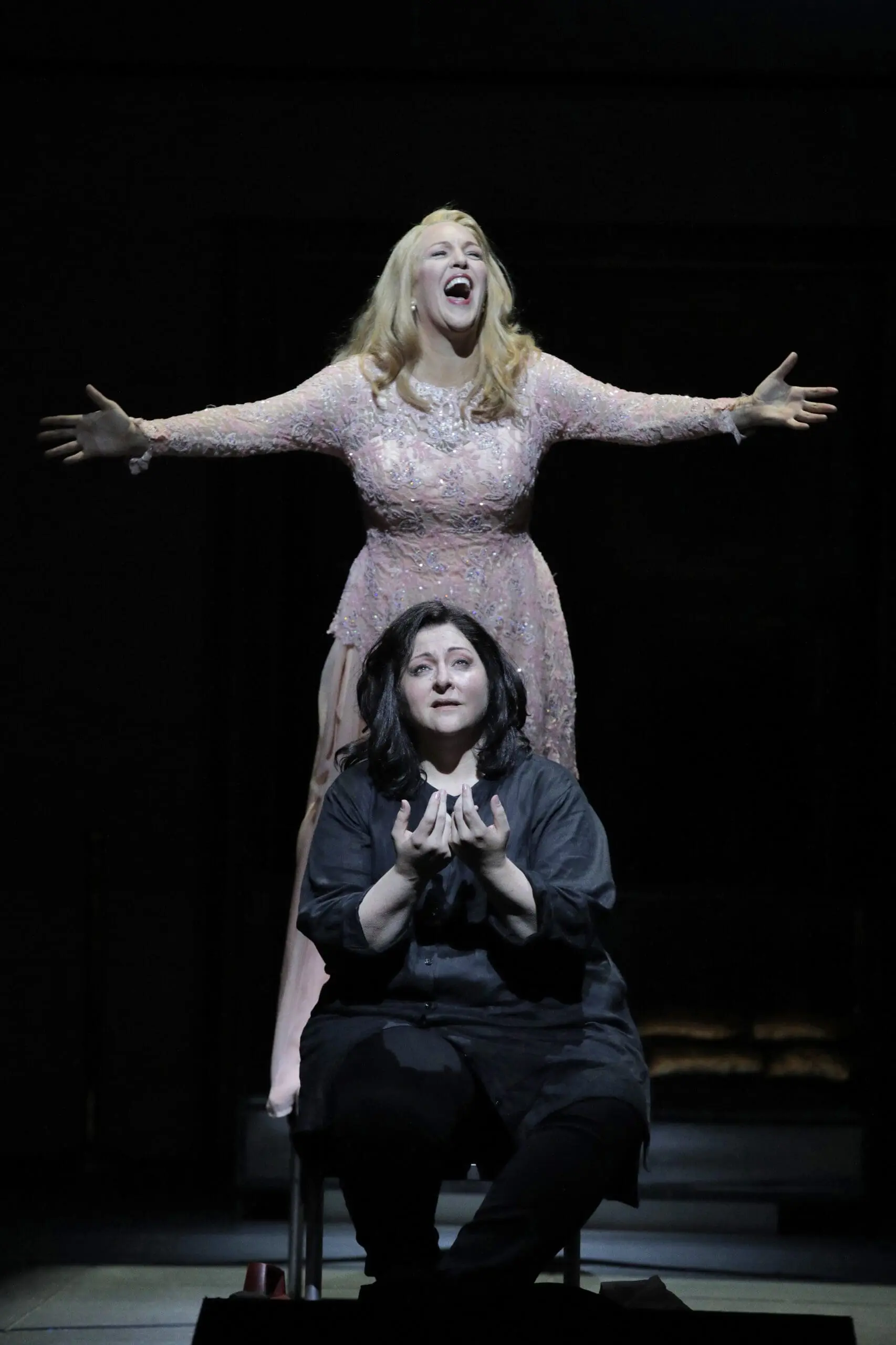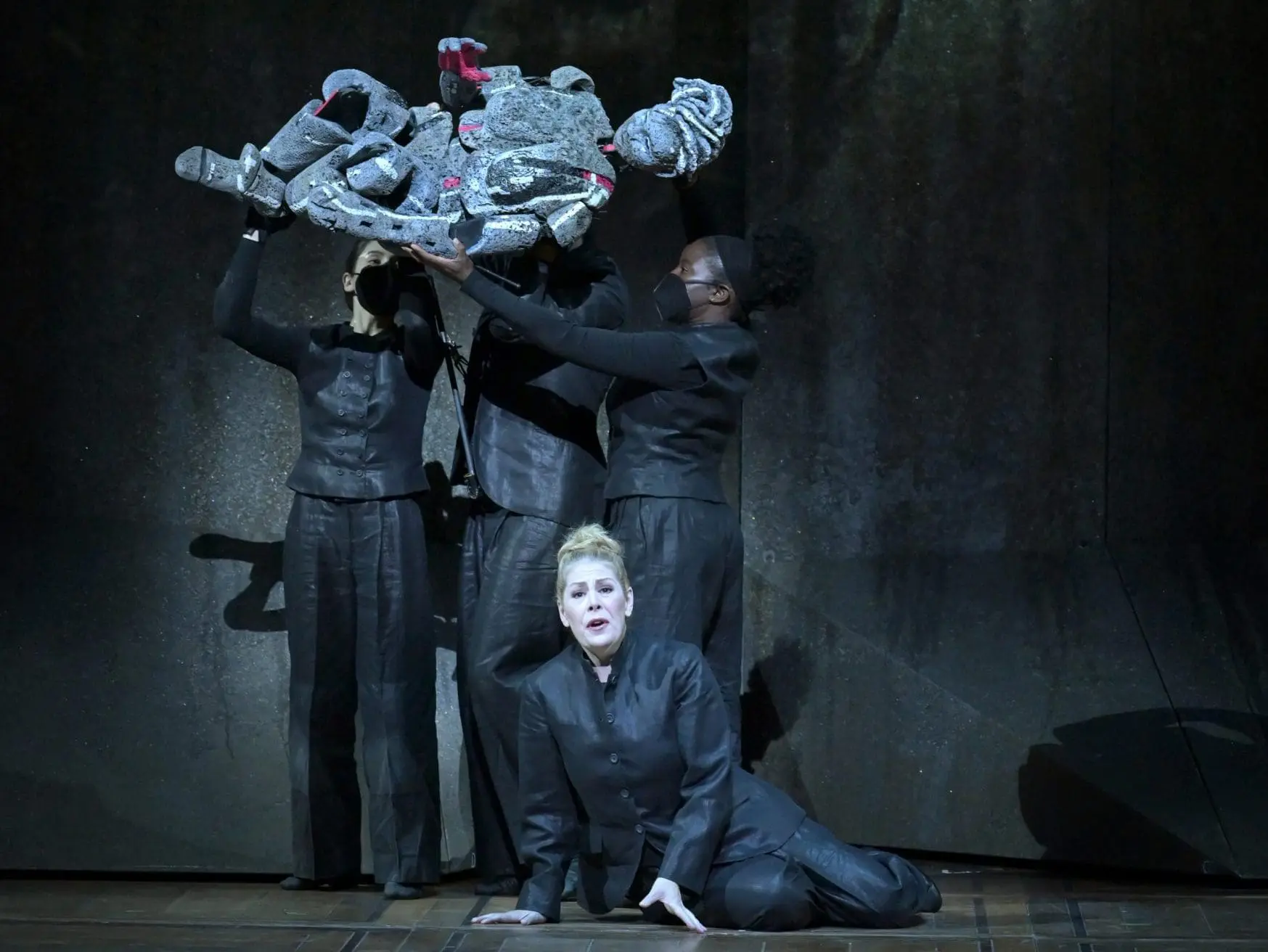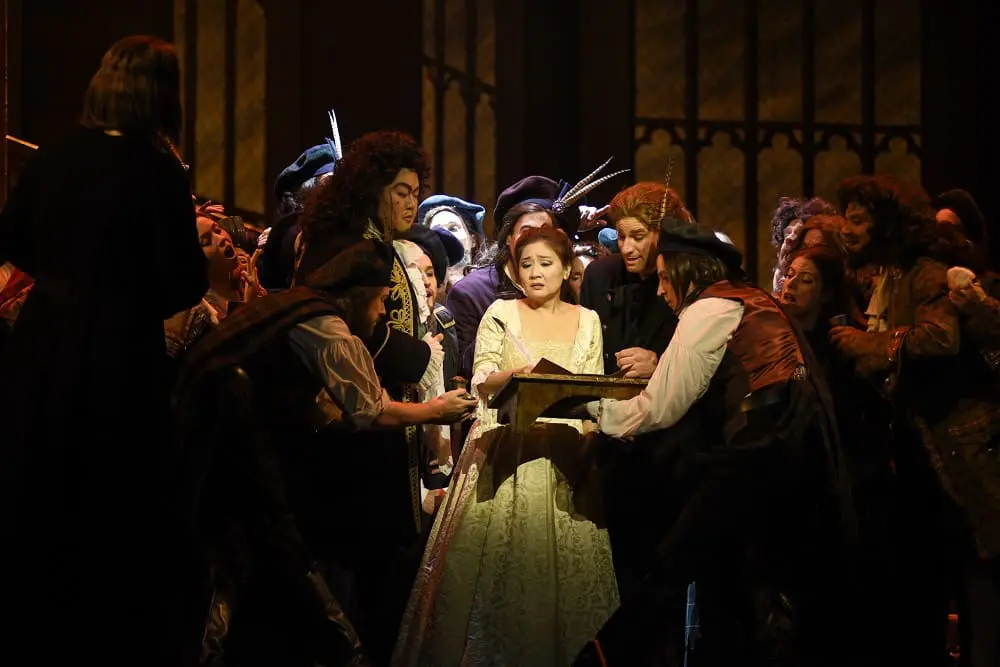Probably nothing could have nudged me out of my semi-confinement in Normandy and reluctantly onto my first plane since January, if it weren’t an invitation to hear Jonas Kaufmann as Radames in an outdoor concert performance of Aida given by Teatro di San Carlo in Naples (seen Jul. 31st).
At first, the invitation left me perplexed and anguished. It almost seemed unreal: how did Stéphane Lissner, newly appointed director of the Teatro di San Carlo, manage to muster up a series of concerts with international stars during a pandemic? Perhaps part of the answer is that Lissner is, in his own right, a kind of Heldentenor in the international opera administrator league and has considerable clout. His career has been a series of starring roles from his début at the helm of Théâtre du Chatelet in Paris in 1988, when it was still a major opera house, through to the Festival d’Aix-en-Provence (1998-2005), La Scala in Milan (2006-2012) to Paris Opera (2013-2020). During those years he often headed two, if not three, theatres or festivals simultaneously: the Wiener Festwochen as Music Director (2005-2008), Théâtre de la Madeleine (2003-2005), Les Bouffes du Nord (1998-2005)—a stellar juggling act that baffled his tamer colleagues.
Luc Bondy once described him to me as the “bulimic Superintendent.” Many doubted that he would acquiesce to retirement at age 65, as required by French labour laws, and few were surprised when it was announced in the spring that he would be taking over the storied Teatro di San Carlo—the oldest continuously active venue for opera in the world.
It required someone of Lissner’s “bulimic” talents to head one of only a small handful of festivals this summer that braved the logistics of staging live performances during the pandemic. One of these, the Salzburg Festival, was planned years in advance and downsized to meet social-distancing measures, whereas Lissner pulled his festival together in record time, working with the staff and unions of Teatro di San Carlo via video-conference in March. The program was impressive: the open-air Piazza del Plebiscito featured concert versions of Puccini’s Tosca with Anna Netrebko, Yusif Eyvazov and Ludovic Tézier conducted by Juraj Valčuha on 23 and 26 of July; Verdi’s Aida with Kaufmann, Anna Pirozzi and Anita Rachvelishvili with Michele Mariotti conducting on 28 and 31 July, and Beethoven’s Symphony No. 9 with Maria Agresta, Daniela Barcellona, Antonio Poliet and Roberto Tagliavini on 30 July.
In spite of a last-minute panic attack at the thought of possible quarantine and nearly cancelling my trip, once landed in Naples the whole experience was liberating; the border police waved us through, no temperature taking or nasal Covid-swab tests. Masks were required everywhere but once in our seats at the Piazza del Plebiscito, we were permitted to remove them. And finally, what better consolation after months of lockdown than to hear Jonas Kaufmann sing “Celeste Aida”. At age 51, the German tenor’s voice is imbued with rich, burnished tone and brooding depth, yet still carries traces of the lyric lightness that characterized his earlier Mozart roles. He saved his smoldering power for the opera’s climactic moments (“Sacerdote, io resto a te”) whereas in the tender passages (“Celeste Aida”), the soothing warmth of his tone and the inimitable way he shaped the endless phrases held us in thrall.
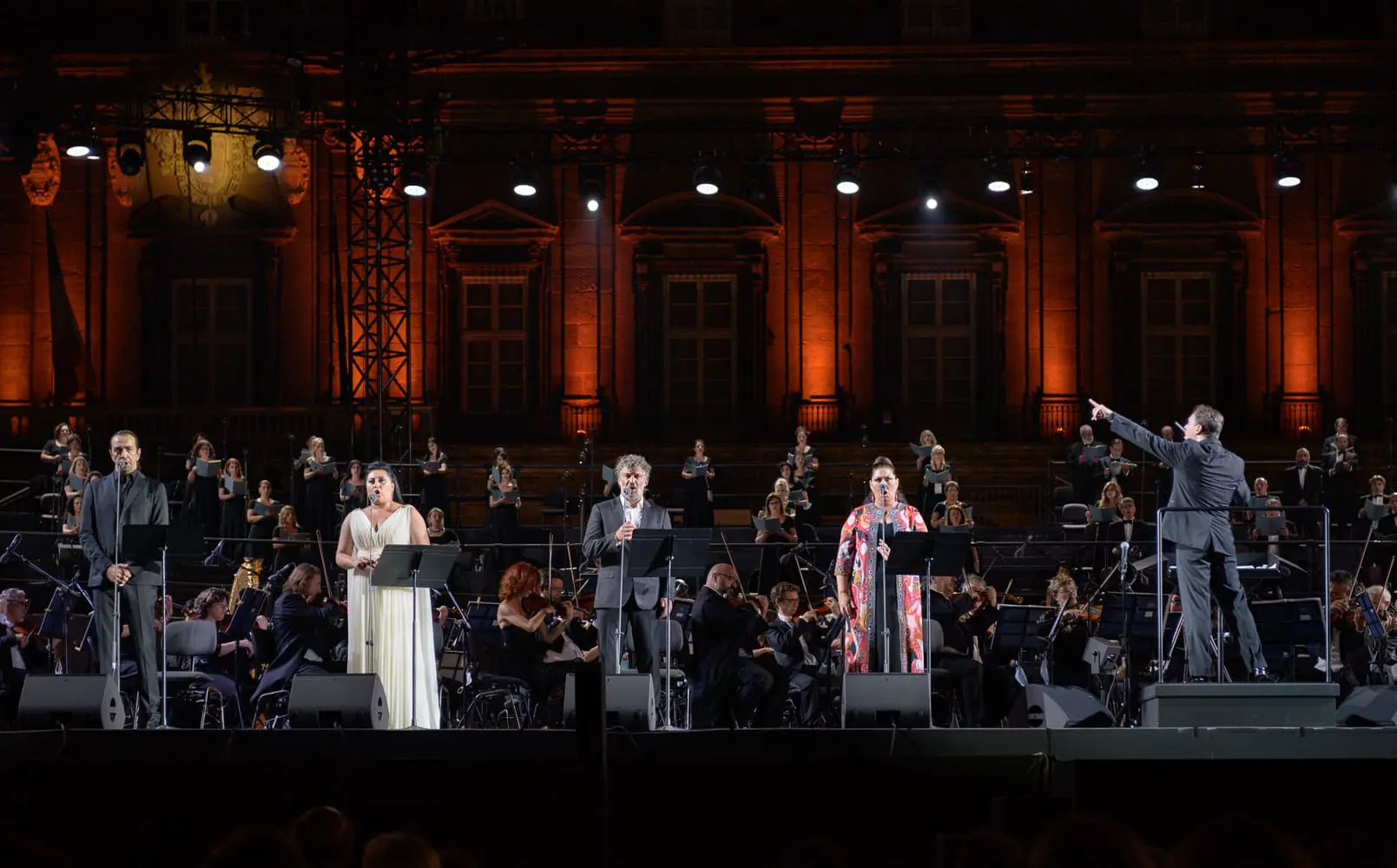
L to R: Claudio Sgura (Amonasro), Anita Rachvelishvili (Amneris), Jonas Kaufmann (Radames) & Anna Pirozzi (Aida), conducted by Michele Mariotti in Teatro di San Carlo’s Aida. Photo: Mario Wurzburger
In Aida’s great Act I aria, “Ritorna vincitor,” Anna Pirozzi showed vocal assurance and dramatic force, convincingly portraying the pungency of her dilemma: to pray for the safety of her beloved, the Egyptian general Radames, is to curse her Ethiopian countrymen. Though her voice started to show signs of fatigue, she sang the touching Act III aria, “O patria mia,” with penetrating beauty.
Widely acclaimed for her interpretation of the role of Amneris, Anita Rachvelishvili was in full control of her sumptuous voice throughout and brought riveting dramatic power to this concert performance of the work.
The baritone Claudio Sgura was regal as Amonasro, Aida’s father. There were impressive performances from the young Italian singers: Roberto Tagliavini as Ramfis, the high priest; Fabrizio Beggi as the Egyptian king and the excellent Selene Zanetti as the Sacerdotessa .
The conductor Michele Mariotti led the Orchestra and Coro del Teatro di San Carlo with sweeping contrasts and rich timbre; sadly the final most lyrical moments were marred by a chorus of firecrackers deliberately set off on the edge of the piazza to disturb the performance.
But after enduring a year of nearly non-stop strikes and Gilet-Jaune demonstrations that brought the Paris Opera to a halt for months—what are a few firecrackers? Lissner’s season for the coming year at San Carlo has been officially announced and confirmed with the support of sponsors, a context that is certainly more encouraging than the budgetary situation in Paris, with its huge deficit due to closures, steadily decreasing public subsidies and further strikes looming.


